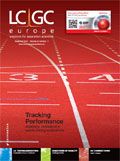Event News
HPLC 2013
HPLC 2013
HPLC 2013 will take place at the Amsterdam RAI Conference Centre, Amsterdam from 16–20 June 2013 and is being co-chaired by Peter Schoenmakers and Wim Kok from the University of Amsterdam, The Netherlands. HPLC 2013 is an international symposium focusing on the latest developments in high performance liquid chromatography (HPLC) and complementary separation techniques such as capillary electrophoresis, field-flow fractionation (FFF) and supercritical fluid chromatography (SFC). Hyphenated techniques that play a pivotal role in HPLC will be covered extensively, as well as the latest developments in microfluidics and lab-on-a-chip techniques.
HPLC 2013 will cover the most important applications and advances in theoretical studies in HPLC and provides valuable resources for separation scientists seeking practical solutions and to extend their understanding of the subject. The symposium will consist of lectures, tutorials and short courses in high performance liquid chromatography (HPLC) and will be divided into three distinct areas: HPLC MS 2013, HYPERformance LC and High Impact LC.
HPLC MS 2013 will focus on liquid chromatography mass spectrometry (LC–MS) and offers attendees the opportunity to boost their knowledge in both disciplines. Throughout the symposium one of the parallel sessions (featuring 18 keynote lectures and 39 submitted oral presentations) will be dedicated to LC–MS. Topics covered will include mass spectrometry, ionization methods, quantitation, LC–MS, CE–MS, LC–MS of small- and large molecules and data handling.
The HYPERformance LC component will consist of 28 Keynote lectures and 24 oral presentations focusing on state-of the-art techniques, applications and theory in the core areas of HPLC from the leading experts in these fields. Topics will include stationary phases, fundamentals, instrumentation, selectivity, electromigration, chemometrics and LC×LC.
High Impact LC will involve 16 Keynote lectures, 35 oral presentations and 7 discussions and is a programme dedicated to challenging the HPLC community to identify directions of future research and innovation and solve problems that could hinder such advances. There are seven areas that will be investigated: metabolomics, environmental, proteomics, polymers, food, pharmaceutical, and forensics. Each section will have an expert who will outline the most important goals in his or her field and how analysis by HPLC can contribute. This is followed by a response on what is currently possible and how this research could possibly develop and the obstacles that need to be overcome.
Education is a core concept throughout HPLC 2013 and in addition to the comprehensive scientific programme and 21 tutorials there are short courses on the Sunday 16 June 2013 covering sample preparation, retention mechanisms, LC–MS, including LC coupled with tandem mass spectrometry (MS–MS) and comprehensive two-dimensional liquid chromatography (LC×LC). A stellar cast of chromatographers will be presenting at HPLC 2013 and full details can be found at www.hplc2013.org.
The annual Csaba Horváth Award will be at stake for young talented scientists under 35 at the time of their lecture. Last year's winner, Stefan Bruns from Marburg University (Germany) will present in the opening plenary session. A team of experts led by Gerard Rozing will select the best posters. The public may also vote on a popular poster award through a novel high-tech process. All contributing scientists can identify themselves as award candidates when submitting their abstracts.
An exhibition of leading HPLC and instrument and product vendors is an important part of the HPLC 2013 and will run in parallel with the conference. Over 50 exhibiting companies and 1200 participants are expected to attend. There will be about 200 oral presentations, 800 posters and 7 discussions. Lunches and refreshments are included in the conference fee.
Amsterdam is the largest city and capital of The Netherlands and is famous for its vibrant and diverse nightlife. The RAI conference centre is easily accessible by public transport. The conference centre is a short train ride away from the much-acclaimed and easily accessible Schiphol airport. Important deadlines include 1 January 2013 for oral presentations, 1 May 2013 for poster presentations and 1 March 2013 for discounted early bird registration.
Website: www.hplc2013.org or E-mail: hplc2013@caos.nl
7–8 November 2012
WWEM – Water, Wastewater & Environmental Monitoring 2012
Telford Internaional Centre, Telford, UK
Organizers: International Labmate Ltd
Tel: +44 (0)1727 858840
Fax: +44 (0)1727 840310
E-mail: info@wwem.uk.com
Website: www.wwem.uk.com
12–16 January 2013
SLAS 2013 2nd Annual Conference & Exhibition
Gaylord Palms Resort and Convention Centre, Orlando, Florida USA
Organizers: Society for Laboratory Automation and Screening
Tel: +1 630 256 7527
Fax: +1 630.741 7527
E-mail: jbystry@slas.org
Website: www.slas2013.org
6–8 February 2013
SCM-6 — 6th International Symposium on the Separation and Characterization of Natural and Synthetic Macromolecules
Dresden, Germany
Tel: +49 351 4658 282
Fax: +49 351 4658 214
E-mail:scm-6@ipfdd.de
Website: www.scm-6.de
24–25 April 2013
IX International Ion Chromatography Conference — Ion Chromatography 2013
Zabrze, Poland
Organizers: Institute of Environmental Engineering of Polish Academy of Science
Tel: +48 32 2716481
Fax: +48 32 2717470
E-mail: michalski@ipis.zabrze.pl
Website: http://www.ipis.zabrze.pl/dokumenty/konferencje/2013/IC2013en.pdf
Send any event news to Kate Mosford kmosford@advanstar.com

Analysis of PFAS in Milk by LC-MS/MS
May 15th 2025Dairy milk is one commodity that can be impacted by environmental contaminants, such as PFAS, so it is important to implement extensive, robust, and accurate testing. In this work, a sensitive and reliable method was developed for the analysis of PFAS in milk by LC-MS/MS at levels as low as 0.01 µg/kg.

.png&w=3840&q=75)

.png&w=3840&q=75)



.png&w=3840&q=75)



.png&w=3840&q=75)











